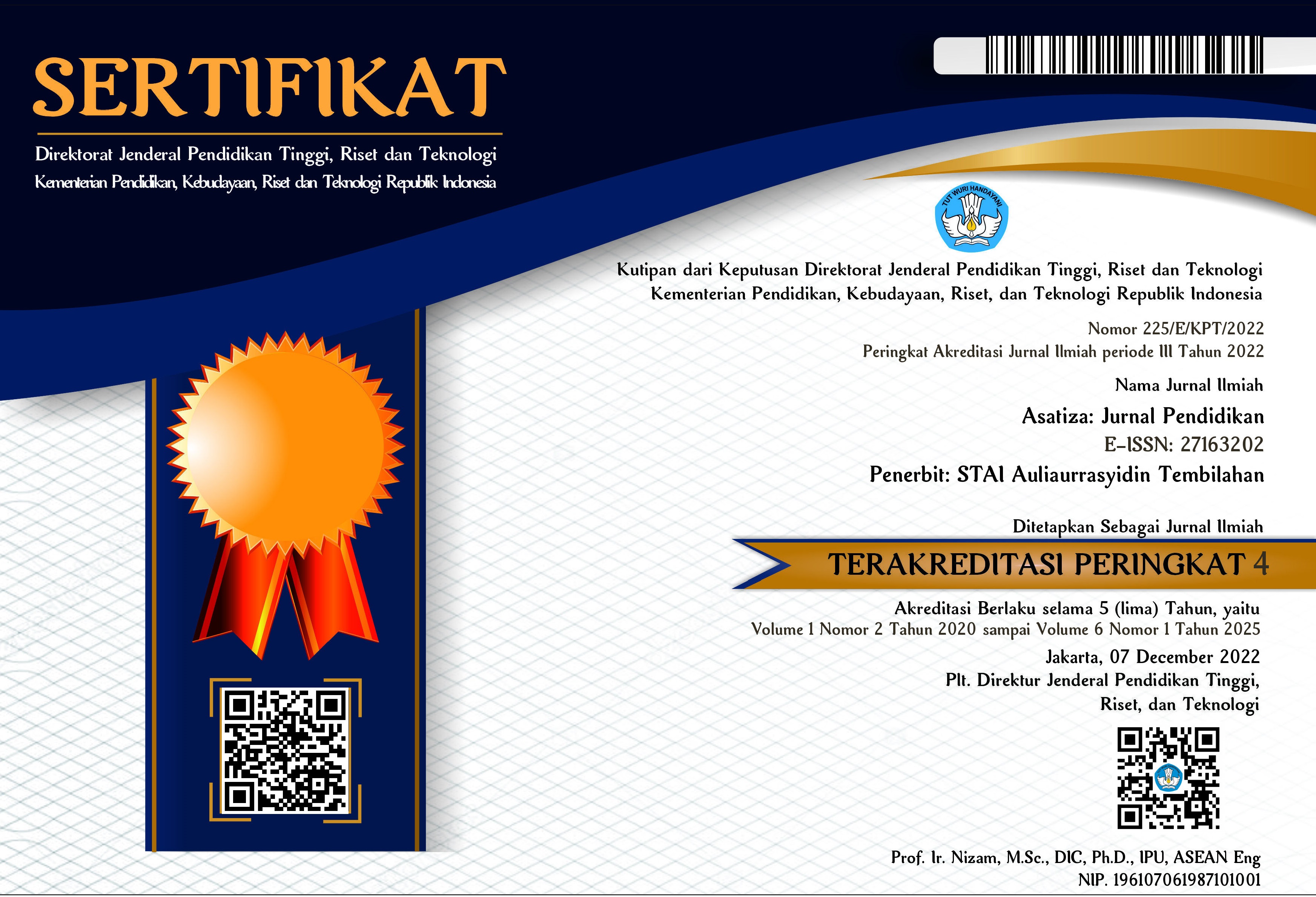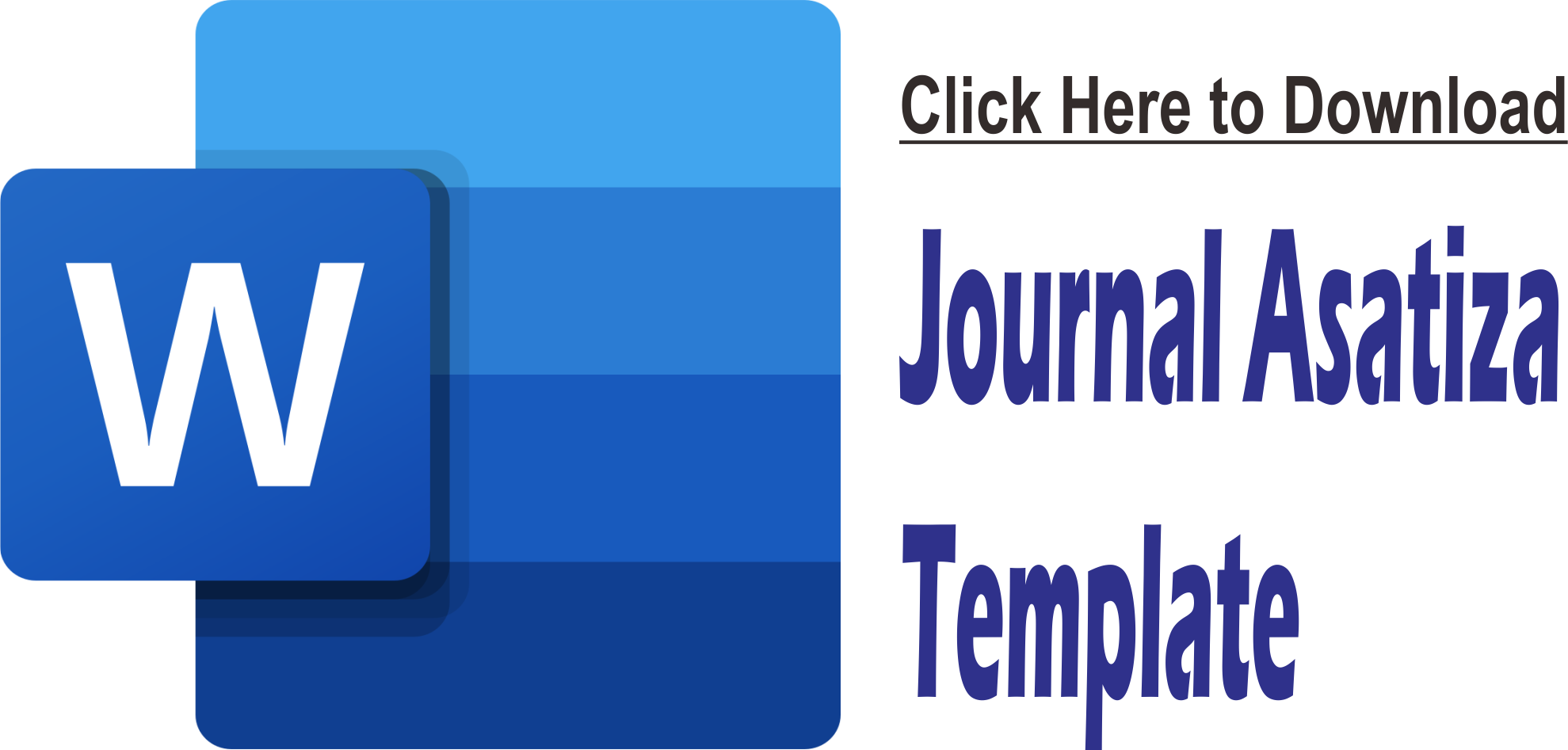Efektivitas Merdeka Belajar Kampus Merdeka (MBKM) bagi Mahasiswa Program Kampus Mengajar
DOI:
https://doi.org/10.46963/asatiza.v4i3.1222Keywords:
Teaching Campus Program, Students, EffectivenessAbstract
State University of Malang (UNM) students who passed the MBKM program selection not only came from the geography education study program but also from other study programs. This will certainly be a new learning experience for them. The aim of the research is to find out whether there is effectiveness of MBKM for Campus Teaching program students after they graduate from the UNM campus. The research method used is descriptive quantitative. The sample in this study was 13 students who took part in the campus teaching program, which was all students who passed the campus teaching program at SMAN 2 Pare. Questionnaire data were analyzed using percentage techniques, while interview data were analyzed using reduction techniques. The results of questionnaires and interviews show that MBKM for Teaching Campus program students is effective after they graduate.
Downloads
References
Aglazor, G. (2017). The Role of Teaching Practice in Teacher Education Programmes: Designing Framework For Best Practice. Global Journal of Educational Research, 101.
Ansori. (2020). Metode Penelitian Kuantitatif Edisi 2. Airlangga University Press.
Anwar, R. N. (2021). Pelaksanaan Kampus Mengajar Angkatan 1 Program Merdeka Belajar Kampus Merdeka di Sekolah Dasar. Jurnal Pendidikan dan Kewirausahaan, 9(1), 210–219.
Asiah, S. (2016). Pengembangan Pembelajaran Media Diorama Pada Mata Pelajaran IPS Tema Lingkungan Alam dan Lingkungan Buatan Siswa Kelas 3 SDN Kepanjen 1 Jombang. UIN Maulana Malik Ibrahim.
Biesta, G. (2015). What is education for? On Good education, teacher judgement, and educational professionalism. European Journal of Education, 75–87.
Lhutfi, I., & M. R. (2020). Merdeka Belajar - Kampus Merdeka Policy: How Does It Affect the Sustainability on Accounting Education in Indonesia? Dinamika Pendidikan, 243–253.
Luthans, F. (2016). Perilaku Organisasi. Yogyakarta: ANDI.
Maulana, M., & R. B. (2014). Harga Pembelian Pemerintah (Hpp) Gabah-Beras Tahun 2014: Efektivitas dan Implikasinya Terhadap Kualitas dan Pengadaan oleh Dolog Government’s Rice Purchasing Price in 2014: Its Effectiveness and Implications on DOLOG’s Rice Purchase.
Moleong, L. J. (2013). Metode Penelitian Kualitatif. Edisi Revisi. PT. Remaja Rosdakarya.
Rahadhitya, R. (2015). Faktor Faktor Yang Berpengaruh Terhadap Efektivitas Audit Internal (Studi Pada Inspektorat Provinsi Jawa Tengah). Diponegoro Journal of Accounting, 4(1).
Riyadi, S., H. R. S. (2022). Dampak Implementasi MBKM Terhadap Pengembangan Universitas Muhammadiyah Yogyakarta Menuju Research Excellence University. Edukatif: JURNAL ILMU PENDIDIKAN, 4(1), 1018–1021.
Rosita, D. A. (2021). Pelaksanaan Program Kampus Mengajar Perintis Pada Sekolah Dasar Terdampak Pandemi Covid-19. Prima Magistra: Jurnal Ilmiah Kependidikan, 2(1), 42–49.
Rukajat, A. (2018). Pendekatan Penelitian Kuantitatif. Deepublish.
Syah, R. H. (2020). Dampak Covid-19 pada Pendidikan di Indonesia: Sekolah, Keterampilan, dan Proses Pembelajaran. Salam: Jurnal Sosial Dan Budaya Syar-i, 7(3).
Titisari, P. (2022). Efektivitas Program MBKM dalam Meningkatkan Kompetensi Mahasiswa. EDUKATIF: Jurnal Ilmu Pendidikan, 4(6), 7403–7414. https://doi.org/10.31004/edukatif.v4i6.4097
Virly Apriliyani, N. (2022). Implementasi Program Merdeka Belajar Kampus Merdeka Implementation of Freedom to Learn Independent Campus Program.
Downloads
Published
Issue
Section
License
Copyright (c) 2023 Azmy Ali Muchtar, Yuyu Wahyudin, Niarrofah Niarrofah, Salma Muthiah

This work is licensed under a Creative Commons Attribution-ShareAlike 4.0 International License.
Authors who publish with this journal agree to the following terms:
1. Copyright on any article is retained by the author(s).
2. The author grants the journal, right of first publication with the work simultaneously licensed under a Creative Commons Attribution shareAlike 4.0 International License that allows others to share the work with an acknowledgment of the work’s authorship and initial publication in this journal.
3. Authors are able to enter into separate, additional contractual arrangements for the non-exclusive distribution of the journal’s published version of the work (e.g., post it to an institutional repository or publish it in a book), with an acknowledgment of its initial publication in this journal.
4. Authors are permitted and encouraged to post their work online (e.g., in institutional repositories or on their website) prior to and during the submission process, as it can lead to productive exchanges, as well as earlier and greater citation of published work.
5. The article and any associated published material is distributed under the Creative Commons Attribution-ShareAlike 4.0 International License











2.png)



